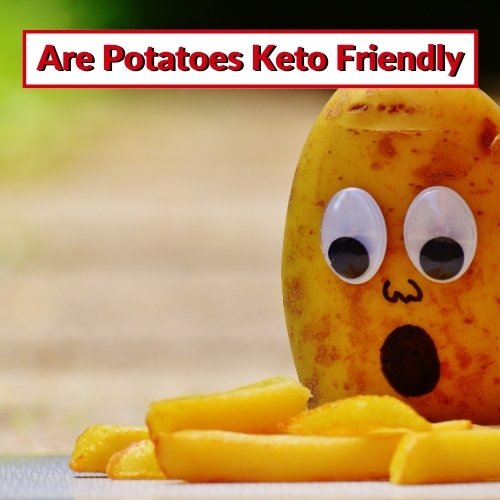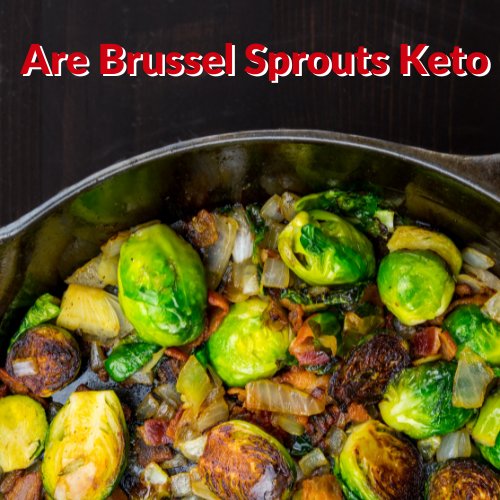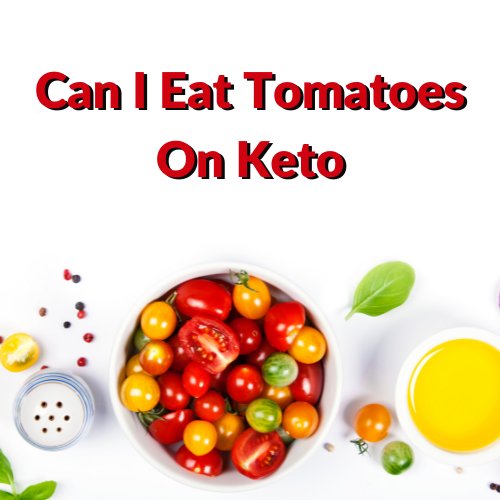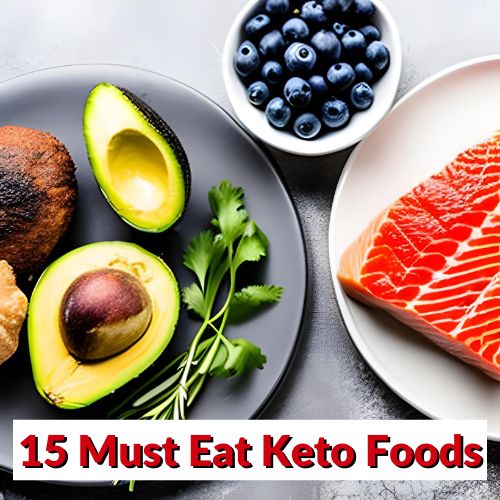Are Potatoes Keto Friendly?
A Comprehensive Guide
Are you a potato lover who’s considering starting the ketogenic diet, but wondering if you’ll have to say goodbye to your favorite spud-based dishes forever? Well, it’s not an easy question to answer because while potatoes may be nutritious and delicious, they might not always be keto-friendly. But don’t worry! In this comprehensive guide, we’ll help you determine whether or not potatoes fit into a low-carb high-fat (LCHF) diet.
Before delving into the topic of potatoes in relation to a keto diet, let’s first understand what the ketogenic diet is all about. Simply put, the keto diet is a therapeutic approach that encourages your body to burn stored fat instead of glucose for energy by consuming plenty of healthy fats, moderate amounts of protein and minimal carbs.
So where does that leave potatoes? While they contain essential vitamins and minerals in their non-starchy form, their carb levels may prompt one out of Ketosis. However, as with anything else on this diverse planet – it all comes down to specific serving sizes and context.
Join us as we explore how potatoes’ nutritional profile affects ketosis and delve into research-backed evidence behind their impact on fat metabolism. We’ll also provide alternatives worth considering along with practical tips on how you can adapt your meals without missing out on nutrients or taste.
What Makes a Food “Keto-Friendly”
If you’re planning to go on a keto diet, it’s essential to understand what makes a food “keto-friendly.” A ketogenic diet is high in fat, moderate in protein, and low in carbohydrates. The primary goal of this eating pattern is to put your body into ketosis – a metabolic state where it burns stored fat for energy instead of glucose from carbs.
Key Macronutrient Ratios for a Keto Diet
A typical ketogenic diet macronutrient ratio consists of 70-80% fat, 20-25% protein, and less than 10% carbohydrate. It may seem counterintuitive to eat more fat when trying to lose weight, but remember that the focus here is on healthy fats like avocados, nuts, and olive oil.
Balancing Carbs, Protein, and Fat: How They Affect Ketosis
The balance between the three macronutrients (carbs, protein, and fat) plays an integral role in sustaining ketosis. Consuming too many carbs can kick you out of ketosis; eating too little protein can lead to muscle loss or slower metabolism while maintaining proper levels ensure satiety and boosts weight loss.
Net Carbs: Calculating Carbs That Matter Most on Keto
Not all carbs have the same effect on blood sugar levels. To calculate how many net carbs you’re consuming accurately – subtract fiber from carbohydrates total. Why do this? Fibre doesn’t digest or contribute calories because humans lack the enzymes required for breaking them down since they are not considered as digestible carbohydrate source during digestion process.
When deciding whether a particular food falls under the category keto-friendly or not consider its overall macronutrient content with emphasis on carb content inclusive of fibre component (a.k.a net-carb ratio).
So Basicly: Any food that has a high-fat content, moderate protein and low net-carb ratio would be considered keto-friendly.
Table of Macronutrient Content for Keto-Friendly Foods
Here’s a table highlighting the macronutrient ratios of some popular keto-friendly foods:
| Food Item | Serving Size | Fat (g) | Protein (g) | Net Carbs (g) |
|---|---|---|---|---|
| Avocado | 1 medium | 21 | 2.7 | 2 |
| Almonds | 1 oz | 14 | 6 | 2.9 |
| Salmon | 4 oz | 11 | 22 | 0 |
| Spinach | 1 cup | 0.1 | 0.9 | 0.4 |
| Coconut Oil | 1 tbsp | 14 | 0 | 0 |
| Cheese | 1 oz | 9 | 7 | 0.7 |
As you can see from this table, these foods are high in healthy fats with low to moderate protein content and minimal carb content.
Keep in mind that everyone has different macronutrient requirements to follow on your diet. Ideally, consulting with a healthcare professional or registered dietitian can ensure you achieve optimal health results on the ketogenic lifestyle. Next explore the nutritional profile of potatoes
Key Takeaway: A keto-friendly food is one that is high in healthy fats with low to moderate protein content and minimal carb intake after factoring in total fiber gram values(a.k.a net-carb measurement).
Exploring The Nutritional Profile Of Potatoes
Now, let’s dive into the nutritional content of potatoes and see how they stack up against the keto diet. Potatoes are packed with vitamins and minerals like vitamin C, potassium, and iron. They are also rich in antioxidants that protect your body from harmful free radicals.
Nutritional Content of Potatoes
A medium sized potato (150 grams) contains:
- Calories: 130
- Carbs: 30 grams
- Fiber: 3 grams
- Protein: 3 grams
- Fat: 0 grams
Potatoes are also a good source of energy due to their carbohydrate content. However, one must proceed with caution as too many carbohydrates can kick you out of ketosis.
Understanding Potatoes’ Macronutrient Composition in Relation to Keto
For those following a keto lifestyle, it is crucial to understand each macronutrient’s role to achieve optimal ketosis. While potatoes contain some protein, this vegetable’s primary component is carbohydrates – the nutrient that needs to be limited for ketosis success.
When you consume carbs on keto (potatoes included), your body will convert them into glucose for energy use or storage. In response to insulin secretion from the pancreas, excess glucose gets stored as fat instead of being used immediately for fuel or glycogen replenishment, leading to an unhealthy state if done regularly.
Glycemic Index of Potatoes and Its Effects on Ketosis
The glycemic index (GI) for potatoes ranges between 70 and 100 – making them high on the scale because they break down quickly into glucose once digested. High GI foods cause rapid blood sugar spikes that can trigger insulin resistance and inflammation in the body.
Eating high GI food such as potatoes can inhibit fat burning by signaling your body to prioritize using sugar rather than fat as an energy source; a situation you want to avoid when on a keto diet.
Although potatoes provide some nutritional benefits, their high carb content and glycemic index make them a poor choice for those following a keto-diet. It is best to substitute with low-carb root vegetables like cauliflower, turnips or radishes to maintain ketosis without compromising on nutrients.
Reasons Why Potatoes May Not Be Keto-Friendly
Alright, let’s get down to why you might have to ditch your beloved potatoes if you’re serious about achieving ketosis. Here are some important factors that make potatoes unsuitable for a keto diet:
1. High Carb Content:
Potatoes are known for their carbohydrate content, with one medium-sized potato containing over 23 grams of carbs. This means they exceed the recommended daily intake limit on keto, which is roughly between 20-50 grams of carbs per day, depending on individual needs and goals.
2. High Glycemic Index:
The glycemic index (GI) measures how quickly a food raises blood glucose levels in the body. Potatoes rank high on this index due to the presence of starch, which breaks down into glucose during digestion and can spike insulin levels. This makes it difficult to maintain a state of ketosis as insulin hinders fat-burning.
3. Low Nutrient Density:
While potatoes offer many vitamins and minerals like Vitamin C and potassium, they are not as nutritionally dense compared to low-carb veggies such as spinach or broccoli per serving size for maintaining optimal health.
4. Triggers Cravings:
Eating potatoes can be addictive because of its high carb content causing spikes in blood sugar levels leading people to crave more hyper-palatable foods making it harder for people with low will-power.
It is not all bad news; there are ways around avoiding potatoes while maintaining your ketogenic lifestyle by using alternative ingredients suitable for Ketosis
Another important aspect is that simply avoiding carbs alone may not be enough for complete health when following a ketogenic diet as achieving ideal nutritional balance matters too.
With its high carb count and glycemic index, consuming whole potatoes while trying to achieve ketosis proves problematic unless consumed minimally or portion-controlled dosages – replacing foods high in carbs with healthier plant options (e.g., leafy greens, low-carb veggies) is essential to support the final outcome of a ketogenic lifestyle.
How Potatoes Affects Ketosis
Potatoes may be a staple in your diet, but if you’re following the keto lifestyle, it’s critical to know how they can impact ketosis. The effect of potatoes on ketosis is primarily due to their carbohydrate content.
As we mentioned earlier, a keto diet aims to limit carb intake sufficiently to force the body into a state of ketosis. When you consume carbs, your body burns them for energy instead of burning fat. In turn, this consumes all your glycogen stores and makes it tough for the liver to produce ketones.
Unfortunately, potatoes are high in carbohydrates and are therefore not considered keto-friendly foods. One medium-sized potato contains approximately 33 grams of carbs – more than twice the recommended daily allowance on a typical Keto diet (20-50g).
The high-carb value alone means that consuming potatoes can send you out of ketosis quickly. It’s vital to be mindful even while preparing potatoes-based dishes using low-carb flours as they still contain some traces of starchy carbs and may defeat the purpose of following a ketogenic diet.
However; don’t fret as there are other healthier low-carb options that can help keep you in ketosis without sacrificing your favorite recipes.
According to research studies done by Koecher et al., consuming boiled potatoes leads to increased insulin levels ultimately leading to reducing fat oxidation rates (the process by which stored fats are burned). Therefore is advisable when trying o lose weight or maintain a healthy one: consumption large quantities of boiled potatoes should be avoided
Research Studies Showing The Connection Between Potato Consumption And Fat Metabolism
| Authors | Outcomes |
|---|---|
| Jovieleen Aguilar et al., 2021) | Roasted potato causes an increase in blood glucose concentration that decreases fat oxidation rates |
| Kabir et al.,2004 | Boiled potato led to relatively higher insulin levels leading to reduced fat oxidation |
| Dube et al.,1990 | Consistently consuming potatoes higher in carbohydrates triggers a slight decrease in metabolic rates |
To keep your body in ketosis, substitute potatoes for keto-friendly vegetables like broccoli, cauliflower or brussels sprouts. These greens provide fewer carbs allowing you to enjoy a flavorful meal without sacrificing taste or nutrition.
Potatoes are among the foods that have high carbohydrate content which may lead to disrupting ketosis – critical when following a ketogenic diet. It is important to choose alternative high-nutrient low-carb options such as leafy greens while avoiding possible triggers, adopting strategies that will help you overcome cravings and stay on track towards being healthier.
keto-friendly options to replace potatoes
Are you tired of eating the same old potatoes as a side dish every day? Are you on a keto diet and looking for alternative options? Look no further! We’ve got some great keto-friendly options to replace potatoes that will satisfy your cravings and keep you on track with your diet.
Cauliflower
Cauliflower is a versatile vegetable that can be used in a variety of ways. It can be mashed, roasted, grilled, or even used as a pizza crust. Cauliflower is low in carbs and high in fiber, making it an excellent option for keto dieters.
Zucchini
Zucchini is a great option for replacing potatoes in dishes such as gratins and hash browns. It has a similar texture to potatoes and absorbs flavors well. Zucchini is also a good source of vitamin C and potassium.
Turnips
Turnips have a slightly sweet and nutty flavor and can be roasted, mashed, or used in stews and soups. They are a good source of vitamin C, fiber, and potassium. Turnips are also low in carbs, making them an ideal potato replacement for those on a keto diet.
Radishes
Radishes have a crunchy texture and a slightly spicy flavor that can add a kick to any dish. They can be roasted, sautéed, or even used as a potato chip alternative. Radishes are also low in carbs and high in vitamin C.
Jicama
Jicama is a root vegetable that has a slightly sweet flavor and a crisp texture. It can be used in salads, stir-fries, or even as a french fry replacement. Jicama is low in carbs and high in fiber, making it an excellent option for keto dieters.
Rutabaga
Rutabaga is a cross between a turnip and a cabbage and has a slightly sweet and earthy flavor. It can be roasted, mashed, or used in stews and soups. Rutabaga is low in carbs and high in vitamin C and potassium.
Nutritional Comparison of Potatoes and Keto-Friendly Replacements
| Nutrients (per 100g) | Potatoes | Cauliflower | Zucchini | Turnips | Radishes | Jicama | Rutabaga |
|---|---|---|---|---|---|---|---|
| Calories | 87 | 25 | 17 | 28 | 16 | 38 | 35 |
| Carbohydrates | 20g | 5g | 3g | 6g | 4g | 9g | 8g |
| Fiber | 2g | 2g | 1g | 2g | 2g | 6g | 2g |
| Vitamin C | 19% | 77% | 33% | 34% | 25% | 34% | 37% |
| Potassium | 9% | 9% | 10% | 6% | 4% | 6% | 6% |
As you can see from the table, keto-friendly replacements for potatoes are lower in carbs and higher in fiber and nutrients such as vitamin C and potassium. They are a great way to add variety to your meals while still staying on track with your diet.
There are many delicious and healthy options to replace potatoes on a keto diet. Try cauliflower, zucchini, turnips, radishes, jicama, and rutabaga for a lower-carb and higher-nutrient alternative.
Tips For Adapting Your Diet To Avoid Potatoes
Are you following a keto diet and looking for ways to avoid potatoes? Potatoes are a staple in many diets, but they can be high in carbohydrates, making them unsuitable for a ketogenic diet. However, there are many keto-friendly options available that you can use to replace potatoes in your meals. Here are some practical tips for adapting your diet to avoid potatoes while maintaining your keto diet.
Addressing Triggers that Lead to Overeating or Cravings
One of the first things you need to do is address the triggers that lead to overeating or cravings for potatoes. Are you used to eating potatoes with every meal, and finding it hard to break the habit? Try experimenting with different types of low-carb vegetables until you find the ones that you enjoy the most. Alternatively, consider looking for recipes that use keto-friendly ingredients as substitutes for potatoes, such as cauliflower or turnips. This can help you create new and exciting meals that don’t involve potatoes.
Recommendations for Meal Planning and Preparation
Meal planning and preparation are essential for anyone who wants to stick to a keto diet. When planning your meals, it’s important to consider the nutritional value of the ingredients you’re using. Many low-carb vegetables, such as zucchini, radishes, and jicama, make excellent substitutes for potatoes. To make sure you’re getting enough fiber and other essential nutrients, include a variety of low-carb vegetables in your diet.
When preparing your meals, try using alternative cooking methods that don’t require frying or baking with potatoes. For example, you can steam or roast your vegetables to create a tasty and healthy side dish. Additionally, consider using healthy fats like avocado oil or coconut oil in place of butter or vegetable oil.
Creating a Support System or Seeking Professional Guidance
Maintaining a keto diet can be challenging, and having a support system can make all the difference. Consider joining a keto support group or finding a friend who is also following a keto diet. This can help you stay accountable and motivated, as well as provide you with new ideas and inspiration for your meals.
If you’re struggling to adapt your diet to avoid potatoes, seeking professional guidance can also be helpful. A registered dietitian or nutritionist can help you develop a personalized meal plan and provide you with additional resources to make the transition easier.
There are many practical strategies you can use to adapt your diet to avoid potatoes while maintaining a keto diet. By addressing triggers that lead to overeating or cravings, planning and preparing your meals carefully, and creating a support system or seeking professional guidance, you can successfully avoid potatoes while still enjoying a healthy and satisfying diet. Remember to experiment with different low-carb vegetables and keto-friendly recipes to find the options that work best for you.
Conclusion
In conclusion, while potatoes are a nutritious and versatile food, they may not be suitable for a keto diet due to their high carb content and glycemic index. However, there are plenty of keto-friendly alternatives to traditional potato dishes, such as cauliflower or turnips, that can be just as satisfying and delicious. It’s important to pay attention to your individual carb intake and macronutrient ratios to maintain ketosis and reach your health and fitness goals. By implementing the practical tips and strategies outlined in this article, you can successfully adapt your diet to avoid potatoes while still enjoying a wide range of flavorful and satisfying meals. Remember to listen to your body, address triggers that lead to overeating or cravings, and seek professional guidance if necessary. With dedication and perseverance, you can achieve your keto goals and live a healthy and fulfilling life.




